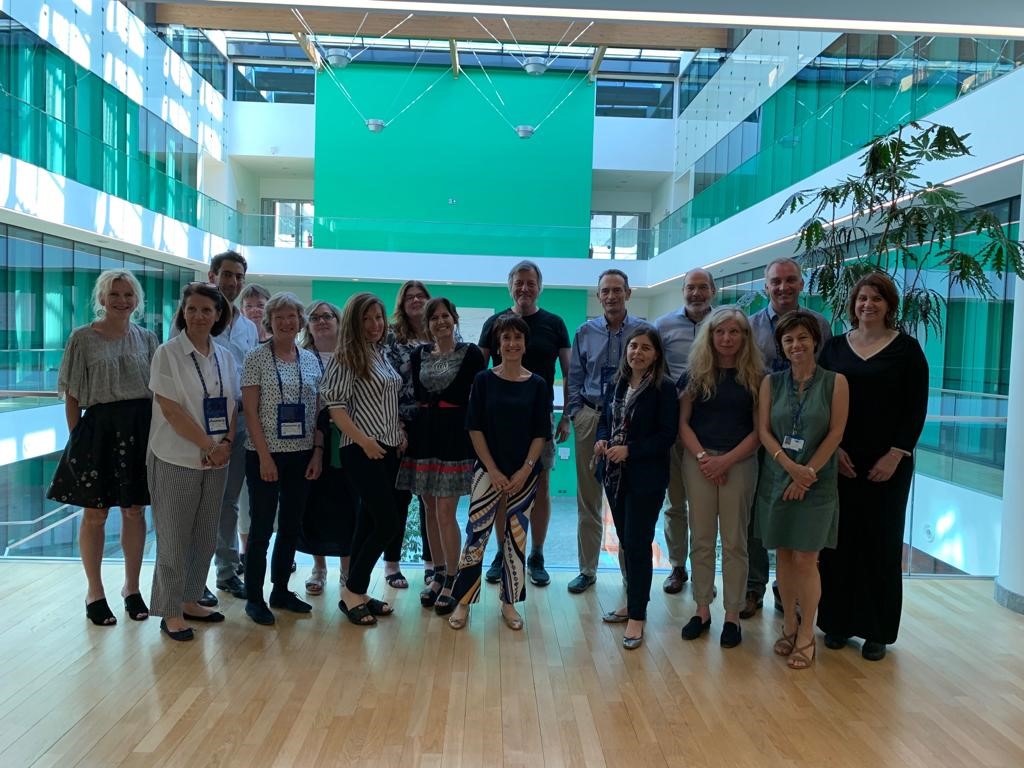A scientist from the University of Nottingham is part of a team of international experts who are calling for the EU-wide Replacement of Animal-Derived Antibody (ADA) production methods in research.
Dr Alison Gray, from the School of Veterinary Medicine and Science at the University of Nottingham, is part of the European Union Reference Laboratory for Alternatives to Animal Testing's Scientific Advisory Committee (ESAC).
The commitee's main role is to conduct independent peer reviews of validation studies of alternative test methods, assessing their scientific validity for a given purpose
This much anticipated report from the comittee, gives a clear recommendation on the EU-wide Replacement of Animal-Derived Antibody (ADA) production methods.
The report states that animals should no longer be used for the development and production of antibodies for research, regulatory, diagnostic and therapeutic applications. It also challenges misconceptions existing in the scientific community about non-animal-derived antibodies and highlights the scientific and economic benefits of their use.
Our ultimate aim is to replace the use of animals in research and industry which, due to a lack of awareness about the technology that is available, hasn't happened before. There is a clear opportunity for replacement here and this report sends a clear message to everyone in the science community that this now needs to happen."
Every year in the EU, close to one million animals are used for antibody generation and production despite the availability of technologies that do not demand the use of animals. Not only is this number high but the procedures employed may cause severe suffering.
Antibodies are special proteins produced by our immune system to stop "intruders" such as bacteria or viruses from harming us when, for example, we cut ourselves or get the flu. They are also extensively used in biomedical research to identify and isolate molecules and to develop new drugs, and are of fundamental importance for diagnosing and treating disease.
Non-animal methods for generating and producing antibodies have been available for years. One such method, based on so-called 'phage display' technology, is extremely versatile and can be used to generate a near-infinite range of high quality antibodies in a very efficient way. The inventors of the technique received the 2018 Nobel Prize in Chemistry.
"Phage display technology has the potential to produce more specific and better functioning antibodies than traditional animal based methods, "says Dr Gray.

Antibodies produced by phage display are already widely used across several fields including therapeutics. The antibody adalimumab, for example, is an approved drug that recognises and binds to a particular biomolecule in the body to reduce inflammation, helping alleviate symptoms associated with many different conditions such as arthritis, psoriasis and Crohn's disease.
Non-animal-derived antibodies typically exhibit highly desirable characteristics such as being able to form a strong bond with targets (binding affinity), having a long shelf life (stability) and the ability to be very selective (specificity), usually outperforming animal-derived equivalents. They also benefit from being sequence defined – a major criticism of animal derived antibodies.
Dr Gray, says: "The antibody-based tests that are commonly used in society appear to be far removed from animal experimentation since no animals were directly tested on. However, the target molecule to be detected is repeatedly injected into animals, initiating an immune response. Months later, the animals are euthanised and antibodies to that molecule are extracted and incorporated into an in vitro, 'animal-free' test. So in reality, we are not replacing animals but substituting methods.
"The ultimate aim of scientists in this field should be to replace the use of animals in research and industry but due to a lack of awareness about this technology, this has not happened fast enough.
A full copy of the report can be found here. Reviews can be found in Nature Methods, Nature and TIBTECH.






